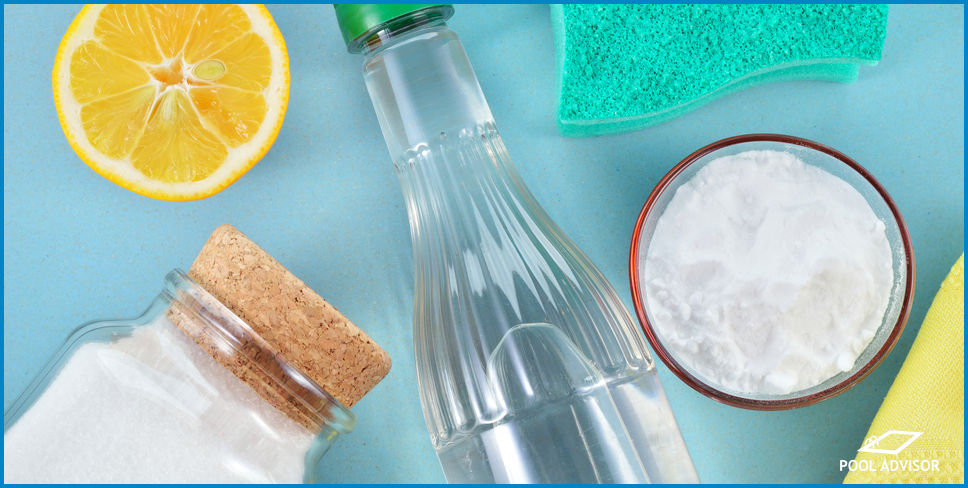
How To Lower Pool pH Without Chemicals
High pH can cause a number of problems for your pool, and if left untreated it may also affect other chemical levels in your water. You’ve probably heard of the typical pH reducer products sold by pool supply stores, but what other options are available?
In this article, we will discuss the problems of high pH, natural ways you can lower your pool’s pH levels, and some other products we recommend that may be preferable.
The ‘Basics’ of High pH
Water with a high pH level is also considered to be basic, or alkaline. Any pH readings above 7.8 is too high for your pool and is associated with a variety of problems.
This can include ineffectiveness in sanitising products such as salt or chlorine, as well as wear on pool equipment. The ideal pH levels for your pool are between 7.2-7.8.
Natural Ways to Lower Pool pH Levels
In order to lower your pool pH, you will need to add acidic substances, or otherwise replace the alkaline water with neutral water. We’ve gathered a list of natural ways that you can lower your pool’s pH, as well as some side effects of these methods that you may want to consider.
Lemon Juice
Lemon juice has a naturally low pH due to its citric acid content. The pH level of lemon juice naturally falls between 2.0-3.0, making it highly acidic.
In theory, adding lemon juice to your pool water can lower your pool’s pH, however, it can be difficult to calculate the exact amount of lemon juice needed due to natural variations in acid content per fruit.
When using this method, it would be wise to introduce lemon juice in small doses and allow it to circulate before retesting your levels and adding more.
A drawback of this method is that because it is difficult to know how much lemon juice you will need, it is difficult to estimate a budget for this approach. You’ll probably need lots of lemon juice, which is hardly cost-effective.
Lemon juice will also introduce a lot of organic material to your pool, which will feed microorganisms and cloud your water.
All in all, it’s not a great option.
Verdict: Not a good option
Vinegar
Vinegar also has a naturally low pH between 2.0-3.0, and can potentially be used to lower the pH of your pool.
We do not recommend using vinegar because, like lemon juice, it can be difficult to calculate a correct dosage and often requires trial and error.
This option may potentially be cheaper than using lemon juice because vinegar is cheaper to purchase in bulk, but could also cause your pool to have a lingering vinegar smell that many people find off putting.
Verdict: Not worth it
Increase Pool Temperature
An increase in pool temperature will slowly cause your pH levels to lower naturally over time. This is often a cause of low pH in pools during the summertime.
You might think that you can use this effect to your advantage, by installing a heat pump for your pool, or using a thermal blanket such as a solar cover to trap heat inside your pool.
Unfortunately, the effect here is so small that you will barely be able to detect it with your test strips or digital pH probe.
Verdict: Not worth it
Replace Water
The cheapest and most reliable way to lower your pool’s pH levels naturally is to replace some of your pool’s water with fresh water. This is effective as long as your source water has a neutral pH of around 7.2-7.4.
The drawback to this method is that you may need to rebalance your chemicals after performing a large water change. It’s likely that chlorine, stabilisers and alkalinity will need to be added, which makes it a long and expensive process.
For that reason, it's generally not recommended, with the only exception being if you already need to partially drain and refill your pool to get rid of some other component in your pool that doesn't break down or dissipate over time, like salt or calcium.
This salt calculator for pools can work out how much water you need to drain and refill into your pool to correct your salt levels.
Verdict: Only worth it if you already need to partially drain and refill your pool
Recommended Products
The most reliable way to reduce the pH of your water is still to use traditional pool chemicals. Although health-conscious consumers prefer natural remedies, pool chemicals are formulated with safety as their number one priority, followed by efficacy.
We recommend sodium bisulphate, a dry acid compound. Muriatic acid is also sold as a pH down product, but tends to be much more dangerous to handle in its concentrated form than powdered sodium bisulphate.
It takes approximately 300 grams of sodium bisulphate to lower pH levels by 0.2 in a pool of 50,000 litres. In a pool of the same size, 485g can lower pH by 0.4, or 745g may be used for a pH reduction of 0.6.
Please note that these estimations are approximate. When using a pH decreaser, you should always follow the instructions provided on the product packaging and take care to abide by any safety warnings.
Conclusion
There are many options available for those looking to lower their pH through natural methods. Although these methods are not as exact as using pool chemicals, many pool owners enjoy the opportunity to experiment with their pool’s chemistry using more unconventional methods.
Do you have any experience with these natural remedies for lowering your pool’s pH? We’d love to hear your thoughts in the comment section.

Louis
A chemical engineer by trade, Louis is committed to debunking myths in the pool industry by explaining the underlying chemistry and making it accessible to all.
